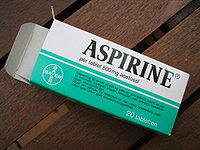טבע תעשיות פרמצבטיות בע”מ הודיעה היום כי מנהל המזון והתרופות האמריקאי (FDA ) העניק אישור מלא לשימוש ב-SYNRIBO® omacetaxine) (mepesuccinate בהזרקה. תרופה אונקולוגית זו זכתה לאישור מואץ באוקטובר 2012, כאשר היא עוד נזקקה למידע נוסף מתוך ניסויים קליניים כדי למלא את דרישות ה- FDA למוצר אחרי שיווקו. SYNRIBO® מותווית לטיפול בחולי לוקמיה מילואידית (CML ) בוגרים שמחלתם מצויה בשלב הכרוני או המואץ ואשר טופלו בלפחות שני טיפולים עם מעכבי טירוזין קינאז (TKI ).
“יחד עם אישור זה, בהתבסס על הניתוח הסופי של שני ניסויי פאזהII עיקריים אשר בחנו את יעילות ועמידות המידע של SYNRIBO® , אנו מאמינים שספקי הבריאות יכולים להיות בטוחים עוד יותר בפרופיל הקליני של תרופה חשובה זו,” אמר ד”ר רוב קורמנס, נשיא ומנכ”ל חטיבת תרופות המקור הגלובלית של טבע. “אישור זה מחזק את מחויבותנו המתמשכת לספק את SYNRIBO® לאנשים הסובלים מ- CML אשר נכשלו בשני או יותר טיפולי TKI .”
התוויה
SYNRIBO® מותווית לטיפול בבוגרים הסובלים מלוקמיה מילואידית שמחלתם מצויה בשלב הכרוני או המואץ ואשר טופלו בלפחות שני טיפולים עם מעכבי טירוזין קינאז (TKI ).
Important Safety Information
Warnings and Precautions
Myelosuppression: Patients with chronic phase and accelerated phase CML who used SYNRIBO® experienced severe and fatal myelosuppression including thrombocytopenia, neutropenia, and anemia. Patients with neutropenia are at increased risk for infections, and should be monitored frequently and advised to contact a physician if they have symptoms of infection or fever. Monitor complete blood counts weekly during induction and initial maintenance cycles and every two weeks during later maintenance cycles, as clinically indicated
Bleeding: SYNRIBO® causes severe thrombocytopenia which increases the risk of hemorrhage. Fatalities from cerebral hemorrhage have occurred. Severe, non-fatal gastrointestinal hemorrhages have also occurred. Monitor platelet counts as part of the complete blood count (CBC) monitoring as recommended. Avoid anticoagulants, aspirin, and nonsteroidal anti-inflammatory drugs (NSAIDs) when the platelet count is <50,000/μL as they may increase the risk of bleeding
Hyperglycemia: SYNRIBO® can induce glucose intolerance. Monitor blood glucose levels frequently, especially in patients with diabetes or risk factors for diabetes. Avoid SYNRIBO® in patients with poorly controlled diabetes mellitus until good glycemic control has been established
Embryo-fetal toxicity: SYNRIBO® can cause fetal harm when administered to a pregnant woman. Women should be advised to avoid becoming pregnant while using SYNRIBO®
Adverse Reactions
Serious adverse reactions (frequency ≥5%) in chronic phase patients: bone marrow failure, thrombocytopenia, febrile neutropenia, and infections
Serious adverse reactions (frequency ≥5%) in accelerated phase patients: febrile neutropenia, thrombocytopenia, anemia, diarrhea, and infections
Most common adverse reactions (frequency ≥20%) in chronic and accelerated phase patients: thrombocytopenia, anemia, neutropenia, diarrhea, nausea, fatigue, asthenia, injection site reaction, pyrexia, infection, and lymphopenia

















השאירו תגובה
רוצה להצטרף לדיון?תרגישו חופשי לתרום!